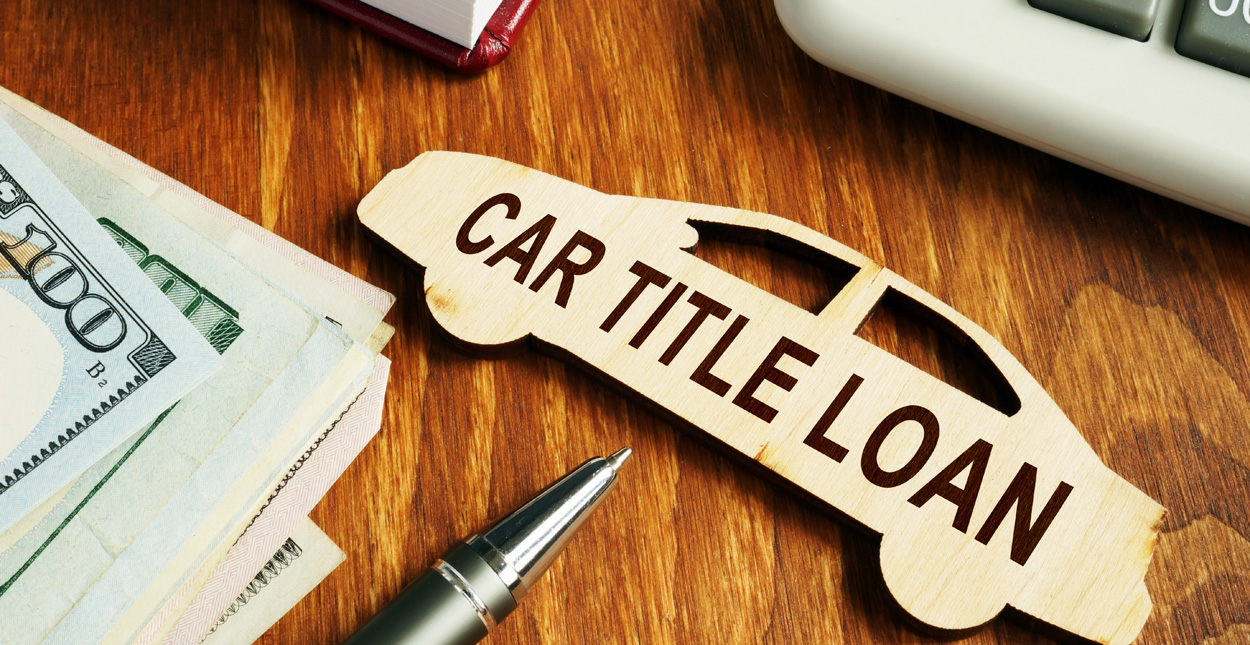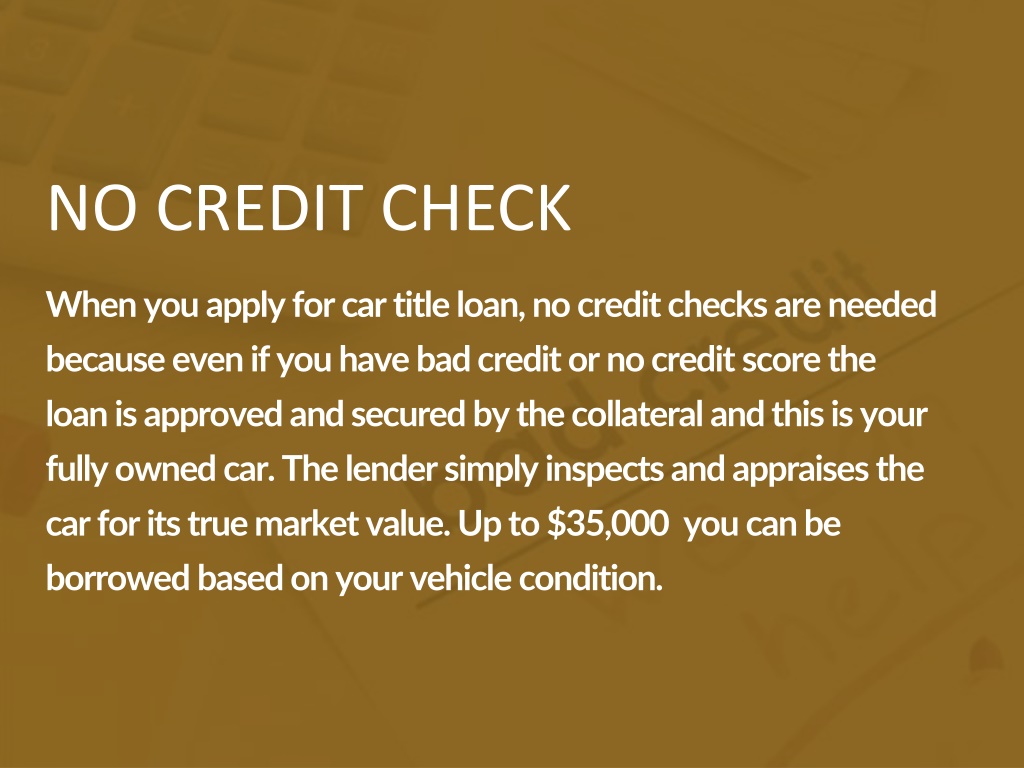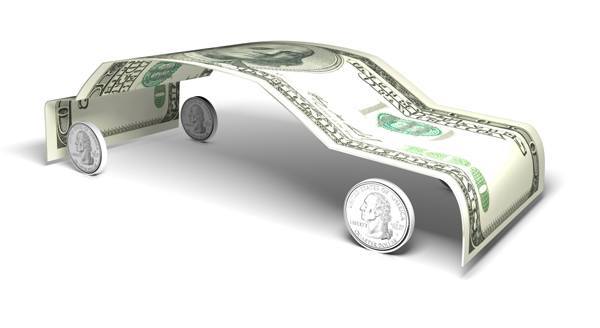Title Loans With No Credit Check

Imagine Sarah, a hardworking single mom, staring at a looming pile of bills. Her car, her lifeline to work and her child’s school, suddenly needs a costly repair. Panic sets in as she realizes her next paycheck won't cover it. She scrolls through online ads, her eyes catching the alluring promise: Title Loans - No Credit Check! A beacon of hope, or a potential storm cloud?
This article delves into the world of title loans with no credit check, exploring their appeal to individuals facing immediate financial needs, while also shedding light on the inherent risks and providing a balanced perspective on whether they are a viable solution or a financial pitfall. We aim to equip readers with the knowledge necessary to make informed decisions about their financial well-being.
What are Title Loans?
A title loan is a short-term, high-interest loan where the borrower uses their vehicle title as collateral. Unlike traditional loans, approval often hinges more on the vehicle's value than the borrower's credit history. This makes them attractive to those with poor or limited credit.
Because lenders can seize the car if the borrower defaults, this can be a risky agreement.
No Credit Check: A Double-Edged Sword
The "no credit check" aspect is arguably the biggest draw for many. It bypasses the lengthy and often discouraging process of applying for traditional loans. For individuals like Sarah, facing urgent expenses, this can seem like a godsend.
But the absence of a credit check also means lenders are taking on more risk, which they offset through exorbitant interest rates and fees.
Data from the Consumer Financial Protection Bureau (CFPB) suggests that borrowers with poor credit are disproportionately likely to turn to these loans.
The Allure and the Reality
The appeal of title loans lies in their accessibility and speed. Borrowers can often get cash within hours, sometimes even minutes, without the need for extensive paperwork or credit history.
This can be a lifesaver when dealing with unexpected medical bills, car repairs, or avoiding eviction.
However, this convenience comes at a steep price. Interest rates on title loans can range from 25% per month (300% APR) to even higher, as reported by organizations like the Center for Responsible Lending.
This means that a $1,000 loan could quickly balloon into $1,300 or more within just a month. If the borrower can’t repay the loan in full, they risk losing their vehicle.
The Cycle of Debt
The short repayment periods, typically 30 days, coupled with high interest rates, often trap borrowers in a cycle of debt. Many are forced to roll over the loan, paying only the interest and fees, and extending the loan term.
Each rollover adds further to the overall cost, making it increasingly difficult to escape the debt. Pew Charitable Trusts research has shown that title loan borrowers often end up paying more in fees and interest than the original loan amount.
Consider Sarah again. If she cannot pay back the loan, she might lose her vehicle, making it impossible to get to work and further damaging her financial stability.
The Lender's Perspective
For lenders, title loans represent a profitable business model. The high interest rates and the security of the vehicle title minimize their risk, even when lending to borrowers with poor credit.
While some lenders may portray themselves as providing a valuable service to those in need, critics argue that they prey on vulnerable individuals.
The CFPB has issued warnings about predatory lending practices in the title loan industry, highlighting the potential for unfair and deceptive practices.
Alternatives to Title Loans
Before resorting to a title loan, consider exploring alternative options. These may include:
- Negotiating with creditors: Explain your situation and ask for a payment plan or extension.
- Borrowing from friends or family: This can often be a more affordable option with lower or no interest.
- Credit counseling: A credit counselor can help you develop a budget and explore debt management options.
- Personal loans from banks or credit unions: These typically have lower interest rates than title loans, but may require a credit check.
- Community resources: Many communities offer assistance programs for individuals facing financial hardship, such as food banks or utility assistance.
Regulation and Consumer Protection
Regulations governing title loans vary significantly from state to state. Some states have strict interest rate caps and other consumer protections, while others have little to no regulations.
The CFPB has been working to establish federal regulations for the title loan industry, but these efforts have faced political challenges.
Consumers should be aware of the laws in their state and report any suspected predatory lending practices to the appropriate authorities.
Making an Informed Decision
If you are considering a title loan, carefully weigh the pros and cons. Read the loan agreement thoroughly and understand the interest rates, fees, and repayment terms.
Ask yourself if you can realistically repay the loan within the short repayment period. Consider the potential consequences of defaulting on the loan, including the loss of your vehicle.
Don't let the allure of quick cash cloud your judgment.
A Final Thought
Title loans with no credit check can seem like a quick fix, but they often lead to long-term financial hardship. While they may offer temporary relief, the high costs and risks associated with them should not be taken lightly.
For Sarah, and countless others in similar situations, exploring alternative options and seeking financial guidance is crucial to navigating financial challenges and avoiding the pitfalls of predatory lending.
Ultimately, the best approach is to prioritize financial planning, build an emergency fund, and explore all available resources before resorting to a high-risk loan like a title loan.













